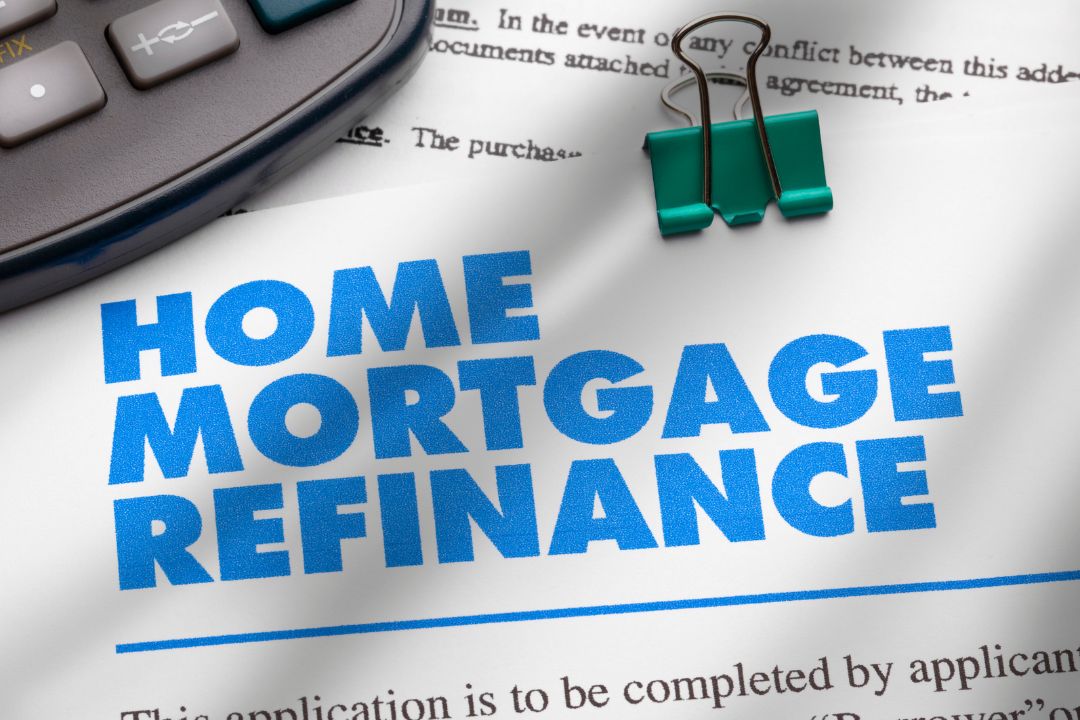You may have heard about refinancing your mortgage if you own a property. You can cut your interest rate, lower your monthly payments, and even modify the terms of your loan by refinancing. Yet, not everyone should refinance. In order to help you make an informed choice, we will cover the advantages and disadvantages of refinancing your mortgage in this post.
Table of Contents
- What is refinancing?
- Pros of refinancing
- Lower interest rates
- Lower monthly payments
- Shorter loan term
- Debt consolidation
- Cash-out refinancing
- Cons of refinancing
- Closing costs
- Increased interest costs
- Extending the loan term
- Prepayment penalties
- Risk of foreclosure
- When should you refinance?
- How to refinance
- Conclusion
- FAQs
What is refinancing?
Your current mortgage will be replaced with a new one through the refinancing process. The terms, interest rates, and payment schedules of the new mortgage are different. You can refinance with your existing lender or a different one. Refinancing can take many different forms, such as rate-and-term refinancing, cash-out refinancing, and refinancing for debt consolidation.
Pros of refinancing
Lower interest rates
A reduced interest rate is one of the main reasons individuals refinance their mortgages. This can assist you in lowering your interest costs over the course of your loan, which can result in sizable savings.
Lower monthly payments
You can reduce your monthly mortgage payments by refinancing. If you’re having trouble keeping up with your current payments, this is extremely helpful. You’ll have more money in your budget to allocate to other things if your monthly payment is lower.
Shorter loan term
You can reduce the length of your debt with the aid of refinancing. As a result, your mortgage will be paid off faster and you’ll be debt-free sooner. Moreover, a shorter loan duration will result in lower interest costs overall.
Debt consolidation
Refinancing can be used to consolidate loans with high-interest rates if you have any other debts. You can refinance and use the equity in your house to settle other liabilities like credit card debt, personal loans, and auto loans. This can help you simplify your finances and reduce the amount of money you pay in interest.
Cash-out refinancing
You can take out a loan against the equity in your house with a cash-out refinance. This can be helpful if you require cash for house renovations, college costs, or other costs. Bear in mind that this will result in higher monthly payments and a larger mortgage.
Cons of refinancing
Closing costs
Similar to when you first bought your house, closing charges apply when refinancing your mortgage. These expenses may include title fees, appraisal fees, application fees, and other charges. It’s crucial to take closing fees into account when making a decision because they can total thousands of dollars.
Increased interest costs
Refinancing can lower your interest charges over the course of your loan while also potentially raising them. This is especially true if you prolong the loan’s term because you will eventually pay a higher interest rate.
Extending the loan term
You’ll be paying off your mortgage for a longer amount of time if you refinance your mortgage and lengthen the loan’s term. This implies that even with a reduced interest rate, you will pay more in interest over the course of your loan.
Prepayment penalties
Prepayment penalties, or fees you must pay if you pay off your mortgage early, are a feature of several mortgages. Consider the prepayment penalty on your current mortgage when deciding whether to refinance.
Risk of foreclosure
Refinancing your mortgage may increase the chance of a foreclosure on your house. You risk losing your home if you are unable to make your new mortgage payments. Before you refinance, it’s crucial to thoroughly assess whether you can afford the additional installments.
When should you refinance?
There are various circumstances where it might be advantageous to refinance your mortgage:
- If the cost of borrowing a mortgage has decreased since you originally did so
- If you wish to transfer from an adjustable-rate mortgage to a fixed-rate mortgage,
- If you want to reduce the loan’s term,
- If you wish to withdraw some of the equity in your house
- If you wish to consolidate your high-interest bills, you may have other options.
- Before you decide to refinance, it’s crucial to carefully weigh your options and the associated costs.
How to refinance?
There are numerous actions you must take if you choose to refinance your mortgage:
- Compare rates and terms from several lenders.
- Assemble supporting documents, such as tax records and pay stubs.
- Get pre-approved for a mortgage by applying.
- Get your house valued
- Pay closing charges and complete your new mortgage.
Conclusion
Your mortgage can be refinanced as a terrific method to get cash out, cut your monthly payments, and save money on interest. Before you decide to refinance, it’s crucial to carefully weigh the risks and costs involved. A financial advisor or mortgage specialist may be able to assist you to decide whether refinancing is the best option for you.
FAQs
How much can I save by refinancing my mortgage?
The amount you can save by refinancing your mortgage depends on several factors, including your current interest rate, the new interest rate, and the terms of your new mortgage. It’s important to compare rates and terms from different lenders to get an accurate estimate of your potential savings.
Will refinancing my mortgage affect my credit score?
Refinancing your mortgage can have a temporary impact on your credit score, as it involves a hard inquiry on your credit report. However, if you make your new mortgage payments on time and continue to maintain good credit habits, your credit score should recover and may even improve over time.
How long does it take to refinance a mortgage?
The time it takes to refinance a mortgage can vary depending on several factors, including the lender’s processing time and the complexity of your financial situation. On average, it can take anywhere from 30 to 45 days to complete the refinancing process.
Can I refinance my mortgage with bad credit?
It may be possible to refinance your mortgage with bad credit, but it can be more difficult and may result in higher interest rates and fees. It’s important to shop around and compare rates from different lenders to find the best option for your financial situation.
What happens to my escrow account when I refinance my mortgage?
When you refinance your mortgage, your escrow account may be impacted. Your new mortgage lender will typically require an escrow analysis to determine whether you need to adjust your monthly payments for property taxes and insurance. If there is a surplus in your old escrow account, you may be entitled to a refund.





